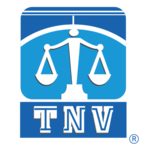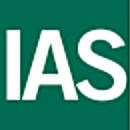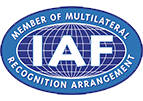Impartiality Statement
At TNV System Certification Pvt. Ltd., we believe that impartiality is not just a compliance requirement—it is a core value that forms the foundation of all our certification services. We understand that our clients, stakeholders, and the general public place their trust in the objectivity and credibility of our certification decisions. To protect that trust, TNV has implemented a comprehensive impartiality management system designed to detect, evaluate, mitigate, and monitor any risk that could compromise our independence and neutrality.
Commitment to Impartial Certification
TNV provides third-party certification services in accordance with ISO/IEC 17021-1:2015, the international standard that defines requirements for bodies providing audit and certification of management systems. We are accredited by the International Accreditation Service (IAS), and our accreditation obligates us to demonstrate a high level of integrity and impartiality in all our operations.
Our commitment to impartiality is embedded in every stage of the certification lifecycle—from application review and audit planning to on-site assessments and certification decision-making. We do not allow commercial, financial, or personal interests to influence our audit outcomes. TNV does not provide consulting services, and we prohibit all staff from engaging in activities that could present a conflict of interest.
Identifying and Managing Risks to Impartiality
We have established a formal risk management framework to identify, analyze, evaluate, treat, and monitor threats to impartiality. These threats may arise from:
1. Ownership, governance, or management structures
2. Conflicts of interest involving auditors or technical reviewers
3. Relationships with consultancy bodies, clients, or contractors
4. Financial dependence on specific clients or sectors
5. Marketing and sales-based incentives (e.g., commissions or referral fees)
Whenever a potential or actual conflict of interest is detected, TNV takes immediate action to either eliminate or reduce the risk to an acceptable level. All actions are documented, and any remaining residual risks are reviewed by top management and an independent impartiality committee.
Stakeholder Consultation and Transparency
Our impartiality monitoring process includes the participation of a wide range of stakeholders. We regularly consult with:
1.Certified clients and their customers
2.TNV employees, auditors, and contractors
3.Government regulators and accreditation bodies
4.Industry associations and business chambers
5.Non-governmental organizations (NGOs) and consumer interest groups
6.Technical experts and academic representatives
The consultation process ensures that diverse perspectives are taken into account, and that no single group has a dominant influence over TNV’s decisions. This stakeholder-driven model fosters credibility and public confidence in our impartiality.
Role of the Impartiality Committee
To further strengthen impartiality, TNV has constituted an Independent Impartiality Committee (IIC), chaired by the Chief Executive Officer (CEO) of TNV System Certification Pvt. Ltd. This committee functions autonomously and includes representatives from various stakeholder groups. Its key responsibilities include:
1.Reviewing risks that could impact impartiality
2.Overseeing corrective actions taken by TNV to address such risks
3.Monitoring auditor conduct and decision-making integrity
4.Advising TNV’s top management on impartiality safeguards
The committee meets at regular intervals and has full access to internal documentation relevant to impartiality management. Their findings and recommendations are acted upon without delay. The CEO, as chair of the committee, ensures that impartiality remains central to TNV’s operational philosophy and oversees that all decisions taken by the committee are implemented effectively and without bias.
Auditor Selection and Conflict Avoidance
All auditors and certification decision-makers at TNV are screened for conflicts of interest before assignment. Auditors are not permitted to audit any client to whom they have provided consultancy, internal audit services, or training within the previous two years. If an auditor declares any perceived or actual conflict, they are immediately reassigned.
Auditor rotation, assignment tracking, and project-specific separation of duties are also enforced to ensure objectivity. The certification process is segmented to ensure that no single person influences multiple stages (e.g., audit and certification decision).
Communication and Public Access
TNV’s impartiality policy is available to clients, stakeholders, and the public. We respond promptly to any concerns or queries related to our impartiality or certification decisions. If any party believes that impartiality has been compromised in a certification activity, they may submit a formal complaint, which is handled transparently through our documented grievance process.
We regularly update our impartiality risk assessments and review this policy as part of our internal audits and management reviews. Continuous improvement is central to how we maintain our impartiality and serve the evolving expectations of our clients and the public.
Conclusion Impartiality is not optional at TNV—it is essential. We are committed to upholding the highest ethical standards, operating free from bias, and delivering certification services that are fair, balanced, and globally recognized. This commitment ensures that TNV remains a trusted partner for organizations seeking credible certification with integrity at its core.








